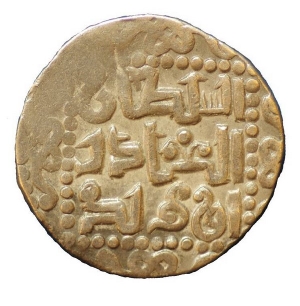History and Culture of Central Asia (Summer term 2025)Historical Names of the Central Asian RegionA lecture by Shamsiddin Kamoliddinov, Oriental University, Tashkent, Uzbekistan.
22 April 2025

Photo: © IBISRC

We coridally invite to the first lecture in our series on the history and culture of Central Asia, with a special focus on the Zerafshan Valley, which we're also offering this summer term. The first lecture of this semester, will be presented by Prof. Dr. Shamsiddin Kamoliddinov, Oriental University, Tashkent, Uzbekistan.
- Topic: Historical Names of the Central Asian Region
- Speaker: Prof. Dr. Shamsiddin Kamoliddinov, Oriental University, Tashkent, Uzbekistan.
- When?: April 22nd, 2025, 2:00 PM CET, 5:00 PM Tashkent Time, 08:00 AM Eastern Daylight Time (East Coast)
- Where?: Online via ZOOM
Why to listen to Prof. Dr. Shamsiddin Kamoliddinov?
What are the origins of the Uzbek people? The lecture explores its long ethnogenesis and history, that is the gradual process of its formation from tribal associations to a modern nation state. Prof. Kamoliddinov bases his study on the rich material culture and literary evidence.
Uzbek people originate from the people, in the land, where they still live, as well as its adjacent regions. The gradual formation of an Uzbek ethnic included different people, those proto-Turkic tribes from the steppes, as well as those of the more urbanized northeastern branches of the ancient Iranian-Sogdian, Bactrian, Khwarazmian and Sak-Massaghet cultures. Socio-economic relations, cultural contacts, and inter-ethnic marriages resulted over the centuries in an integration and assimilation of the people on various levels and finally to the formation of a new ethnic group, the Uzbek people.
Key words. Uzbek, ethnogenesis, Turkic and North-Eastern Iranian languages, Transoxiana, Dashti-Kipchak, Afrasiab, “Dīwān Lughat at-Turk”, the Huns, Western Turkic Khaganate, Western Karakhanids, independent Uzbekistan.
Speakers Profile:
Shamsiddin Kamoliddinov earned his doctoral degree in Historical Sciences in 1993, and was appointed as professor at the Oriental University in Tashkent in 2020. He is well known for his numerous studies in the history and historical geography of Central Asia during the period of the Turkic Khaganate (mid-6th to mid-8th century) and the Islamic Caliphate (mid-8th to early 13th century), being the author of more than 50 books and more than 300 scientific articles.
He was awarded the Prize “To the Descendants of Imam al-Bukhari” in Islamic Studies by Sheikh Abdulaziz al-Baptin of the Emirate of Kuwait in 1999. He serves as a member of the editorial board of the ‘Journal of Islamic Research / İslâmi Araştırmalar Dergisi’ (Ankara University) and ‘Journal of Emerging Technology and Innovative Research’ (JETIR, Ahmedabad, India). He also is a member of the Islamic Manuscript Association at Cambridge University (United Kingdom) and the International Society of the Arabic Papyrology at Leiden University (The Netherlands).
Participation:
In order to participate, please click here or use the following Zoom credentials:
Meeting ID: 446 979 3351
Password: 12345
About the lecture series:
The series is jointly organized by Prof. Dr. Stefan Heidemann, Department of Islamic Studies at the Asien-Afrika-Institut (Universität Hamburg), and Dr. Shovosil Ziyodov, director of the Imam Bukhari International Scientific Research Center in Tashkent, Uzbekistan.
For more information about the joint Lecture Series on the History and Culture of Central Asia, please see here.


